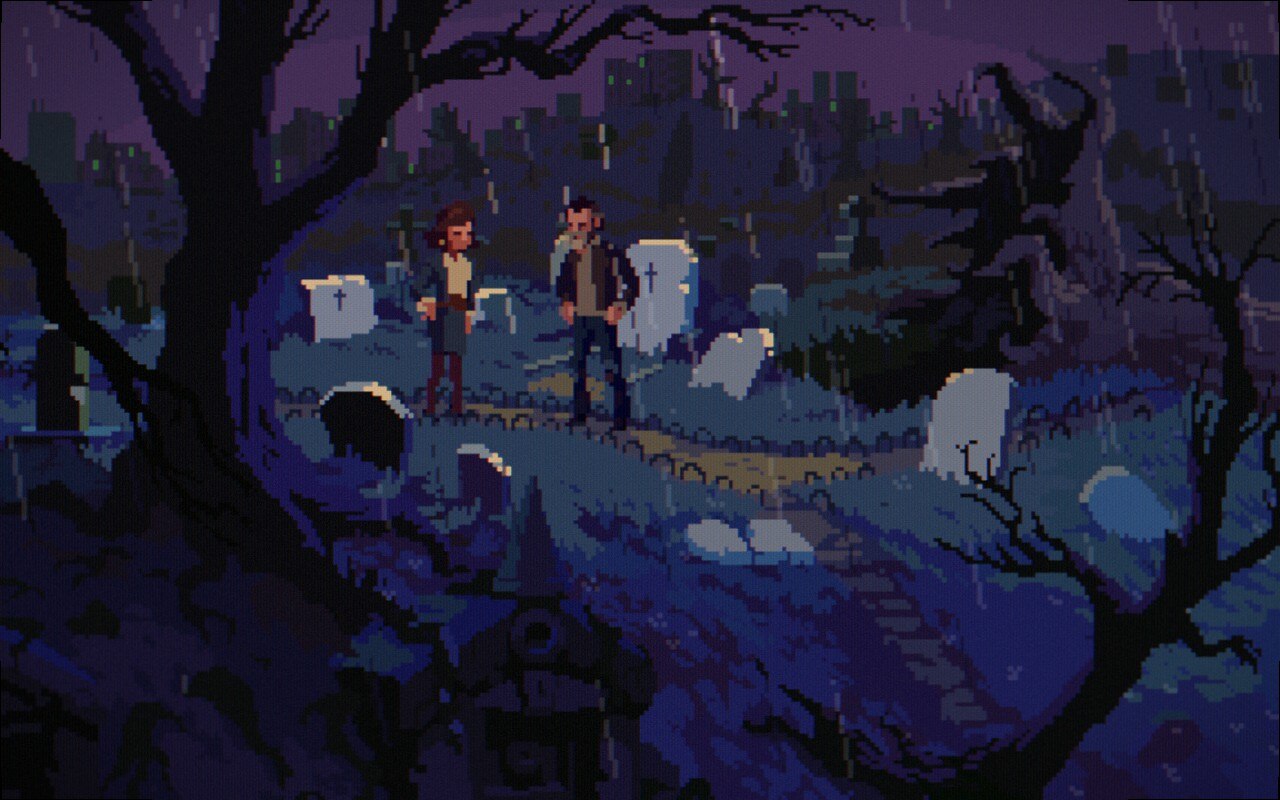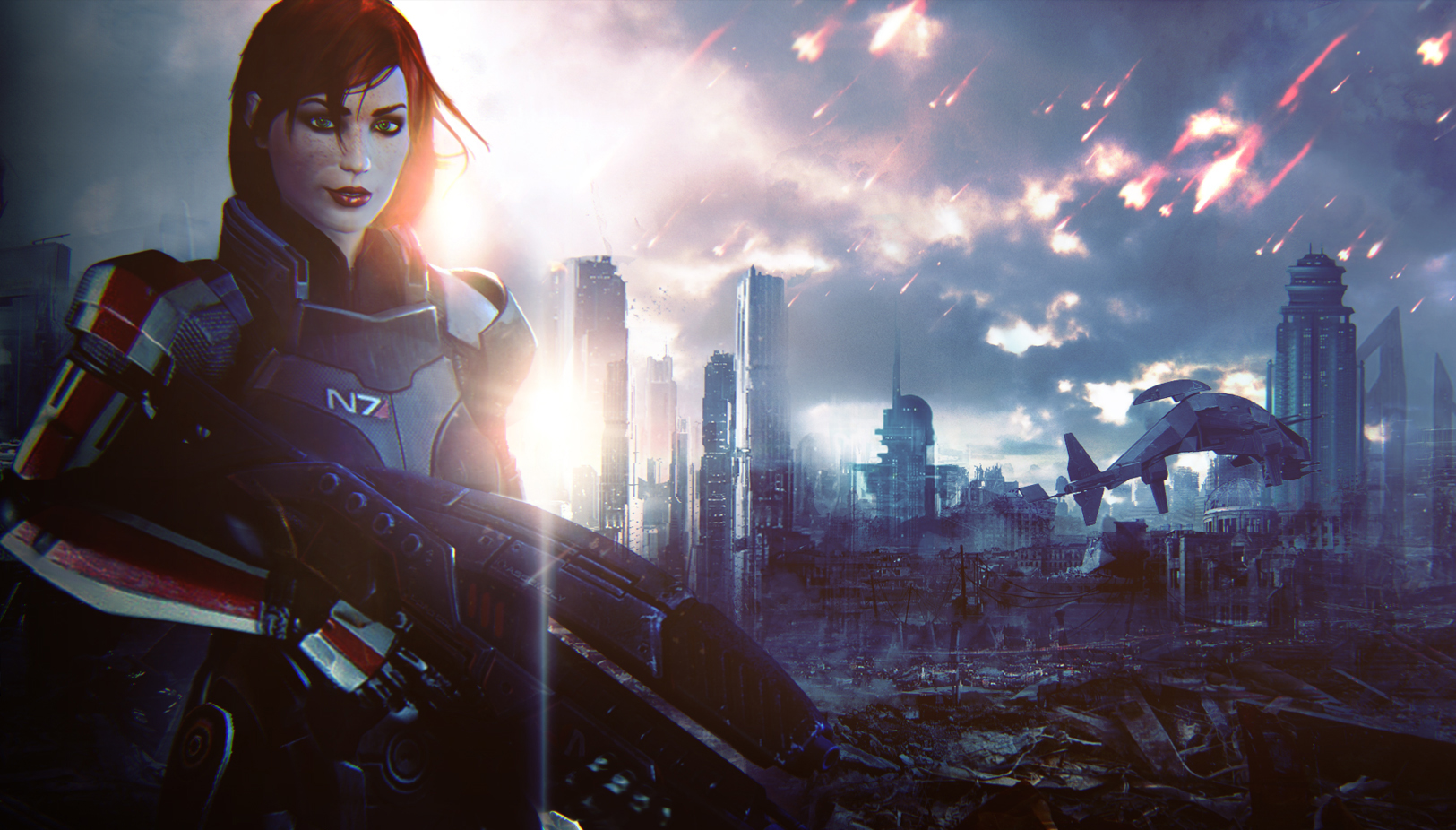
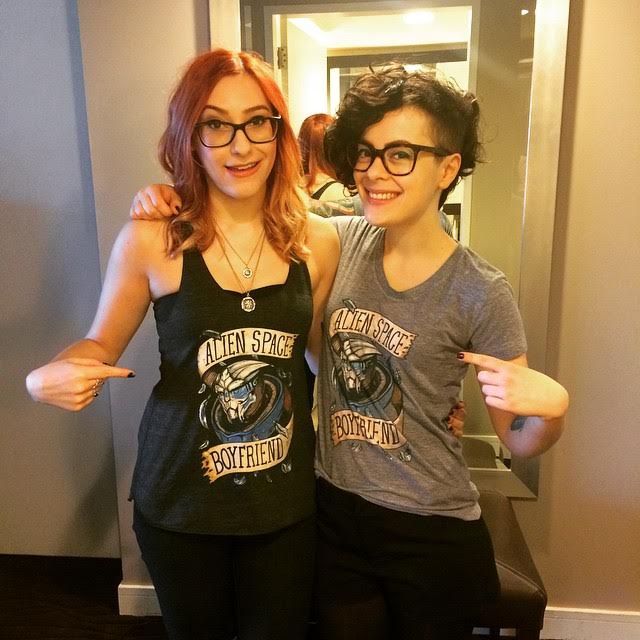
Sam Maggs (left, with Smitherman) is the author of The Fangirl’s Guide to the Galaxy: A Handbook for Girl Geeks, available now from Quirk Books. Named “Awesome Geek Feminist of the Year” by Women Write About Comics, Sam appears on TV and movie screens across Canada, writes a webcomic called Lady Junk, and has written for The Mary Sue, The Guardian, Marie Claire, the National Post, among others. You can geek out with her about Garrus or the Iron Bull on Twitter @SamMaggs.
Somewhere between finishing Mass Effect 3 for the first time in June 2014 and now, something happened to me. If it didn’t sound so sinister, I would describe it as akin to an indoctrination; suddenly, almost so quickly it barely registered, I had the Spectre logo permanently inked on my body. I was writing chapters for gaming books about BioWare. I was appearing on Dragon Age podcasts. The majority of my online friends spent their time tweeting about the in-game romances they were having. I was rooming at Emerald City Comicon with a girl I’d met through Instagram by searching #MassEffectTattoos.
I had become, as so much of the fandom self-identifies, 100% BioWare trash.
Why did this happen? And how? Though I may have been late to the Mass Effect party, I was by no means a newcomer to BioWare’s games. I’ve previously written about how Baldur’s Gate, the company’s first successful RPG, made me fall in love with videogames; a consequence of two things that would later become staples of BioWare’s output and, in my opinion, major keys to their success: heavily narrative-driven and choice-based action, and the ability to completely customize your character.
It’s this last element in particular that I believe inspires such intense and devoted fandom for BioWare’s two major series, Mass Effect and Dragon Age. When was the last time you played a game (or read a book, or flipped through a comic, or watched a television show, or saw a movie) where the savior of the universe was a lesbian woman of color? In a BioWare game, that’s not just within the realm of possibility, it’s completely normalized. The rarity with which marginalized people are able to see ourselves as the heroes of these stories makes BioWare’s titles that much more appealing to gamers and active fan communities—especially since nearly half of the people in both of those groups are women.
Beyond the ability to customize your character, BioWare has proved its progressiveness by making clear to fans that women and otherwise marginalized people are priorities. We don’t feel like also-rans; we feel like we’re actively being catered for, and even marketed to. I’ve felt particularly enthralled by the way their games pay special attention to deep female friendships, something often ignored in most games (a consequence of featuring only token female characters).
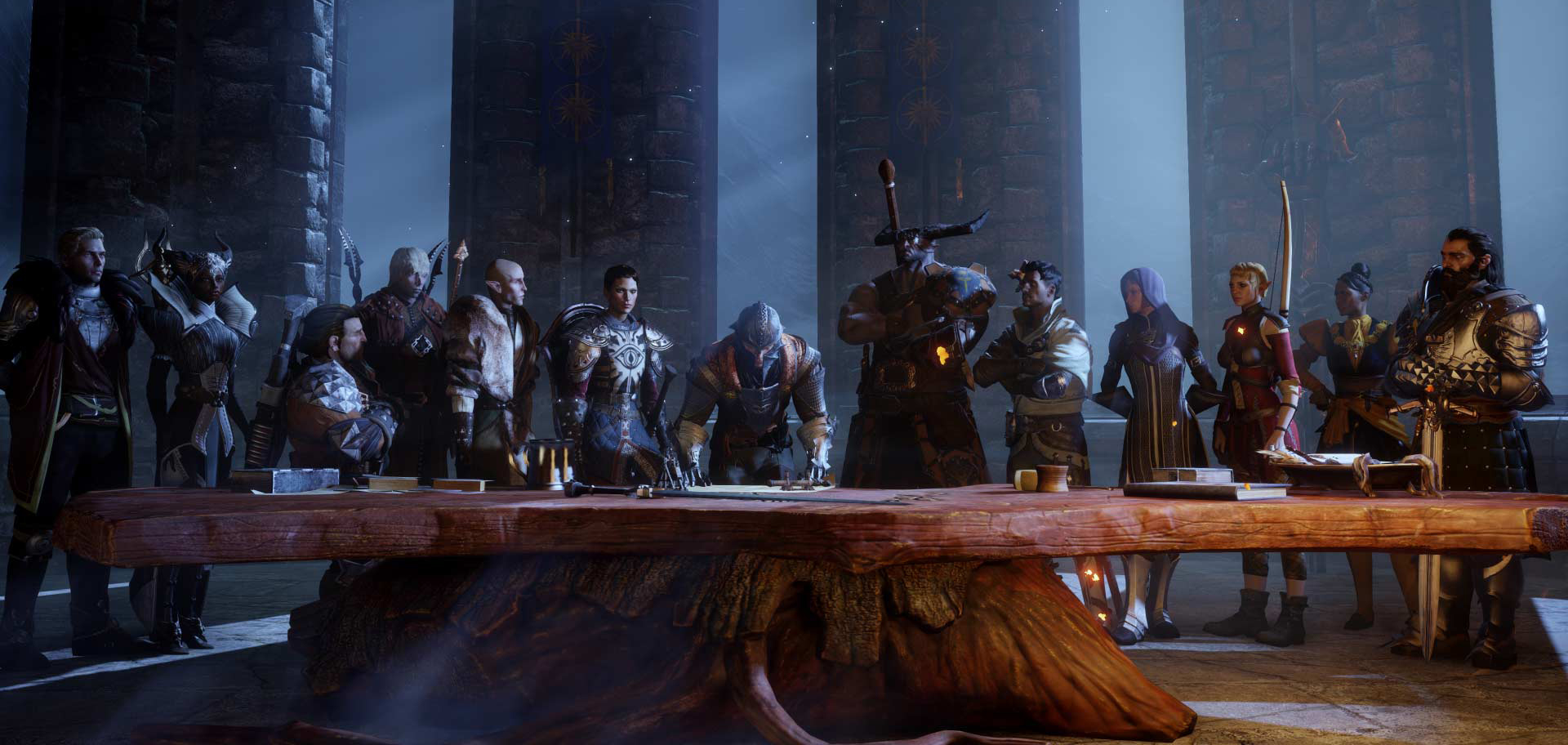
The chats between Shepard and Tali or Hawke and Aveline are so fun and sweet and relatable that it pulls you that much deeper into the narrative. With Dragon Age: Inquisition (BioWare’s most successful launch ever), the game featured gender-neutral box art; developers ensured gender balance in background characters; a major supporting character is a trans person; when you stand around the War Table as a female Inquisitor, making big, game-changing decisions, you stand with three other women and only one man. And, of course, there’s the variety of romance options available to any player, allowing you to enter into relationships with characters from every corner of the LGBTQ+ spectrum.
“The more recent crop of romances makes BioWare games resonate with me like nothing else,” said Becky Chambers, author of the upcoming book The Long Way to a Small, Angry Planet and my fangirl mentor in the world of Mass Effect (she was the first to tell me that this intense obsession I was feeling was completely normal). “Shepard and Liara’s relationship was, honest to God, the first time I'd ever seen SF/F with a fully-fledged, trilogy-spanning love story between two women. That meant the world to me, because it's so incredibly rare elsewhere.”
Keep up to date with the most important stories and the best deals, as picked by the PC Gamer team.
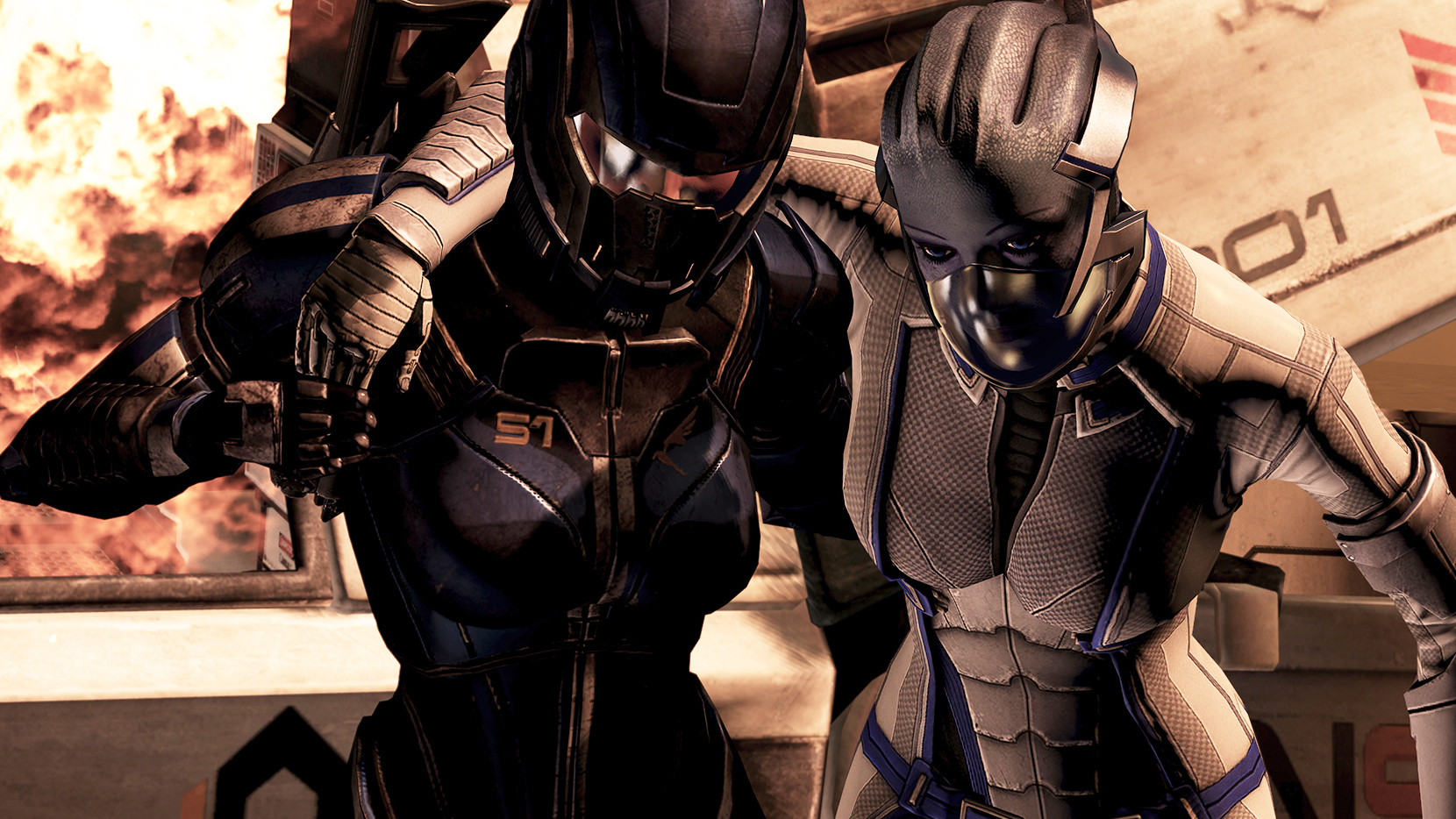
The sense of inclusivity and individual importance has led to the development of one of the most intelligent and overwhelmingly positive online fandom environments of which I have ever been a part. It helps that there’s also a shared sense of absurdity in the BioWare fandom, where we all know we might be in just a little too deep with these games. I mean, you have to have a certain sense of self-awareness when you’re earnestly sharing NC-17 fanfic of a human woman having sex with a weird bird dinosaur alien man or a blue tentacle-haired alien lady.
...being listened to is paramount to a fandom who dedicate so much time and emotional energy to these characters.
But the knowledge that we all feel the same passionately intense emotions for these lumps of pixels, no matter how well-written and complex they may be, gives us an instant connection—and isn’t that the best part of belonging to any fandom? We’re all in on the joke, all on the same level, and that’s what brings us together.
But not all fan-created content is made completely in celebration of BioWare’s games; part of being a responsible and engaged fan is also writing constructive criticism of media we know could do better. And though not always perfect, BioWare is one of the few companies with a readily-accessible creative team that really takes note of and utilizes thoughtful, fan-written criticism. And being listened to is paramount to a fandom who dedicate so much time and emotional energy to these characters.
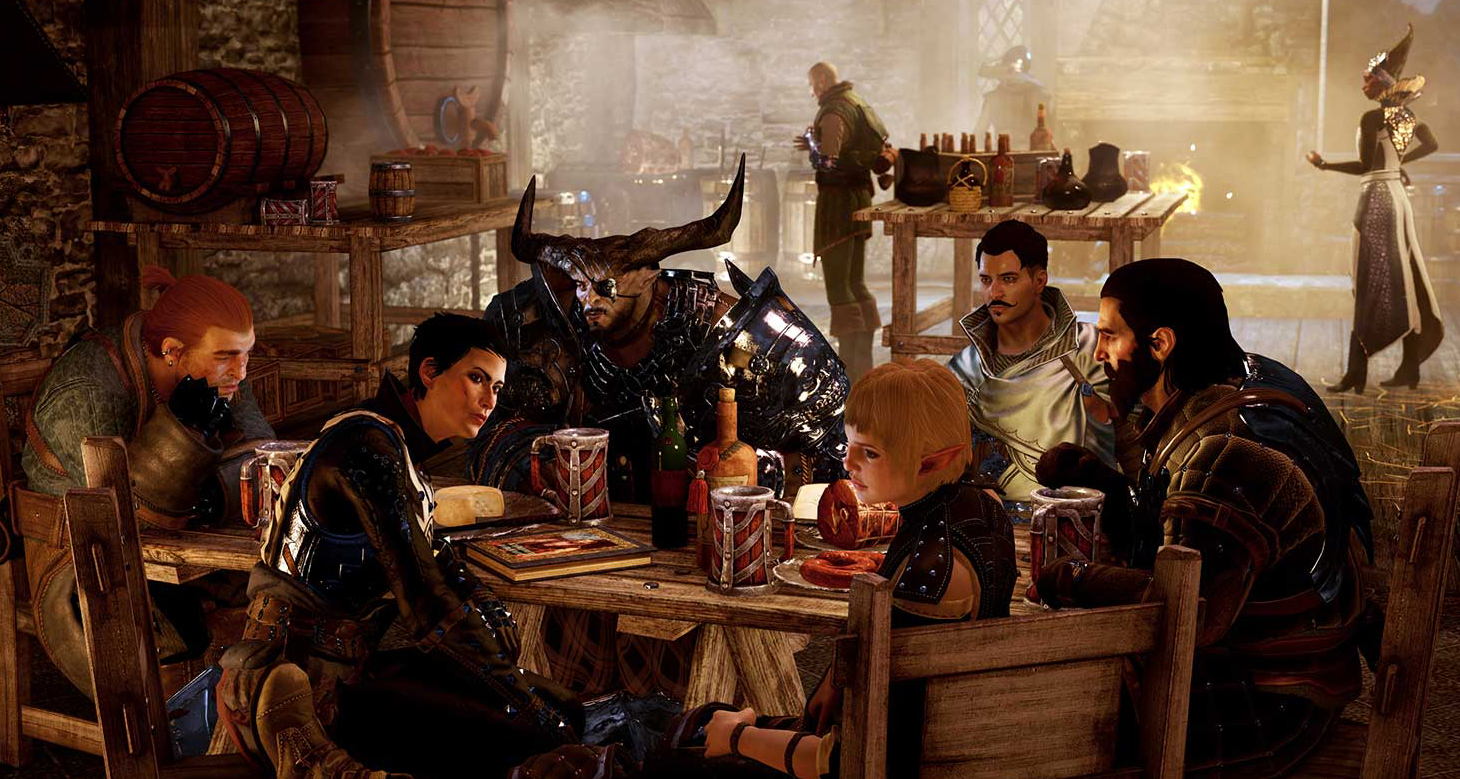
Kristin Lindsay, a Project Manager at Penny Arcade (and one of the many amazing women I’ve met through the BioWare fandom, with Mass Effect love interest Kaidan emblazoned on her forearm), said that BioWare’s early devotion to fan engagement has been a large contributing factor to their success over the last two decades. “They listen to fan feedback and treat it with respect,” she explained. “They listen to our passion for their games and share their own. They've empowered their professionals to mix with the fans, to engage with us and get to know us as friends. Together, we've built an incredibly vibrant community that sees its diversity and spirit reflected back in BioWare's products.”
And despite lengthy wait times between new games that you might think would see fan engagement dwindle, the BioWare community remains consistently enthusiastic and committed online. Though Mass Effect: Andromeda won’t be released for another eighteen months or so, you can be sure Twitter has dissected the trailer frame-by-frame, and there’s already enough Johnny Cash-related comics to fill half of DeviantArt.
Hard choices
Part of this enthusiasm stems from the fact that gaming fandoms, because of the nature of the medium, are inherently interactive to begin with; but BioWare games take that interactivity to the next level, and so do their fans. In part, it’s due to the way decisions in these games are so much more affecting than they are in other series because of how much you’re drawn to the characters. I don’t even want to talk about how much time I spent sitting on the floor in a state of shock and tearful terror as I contemplated the forced choice in Inquisition between killing my love interest from Origins or my player character from DAII. How dare you, Dragon Age.
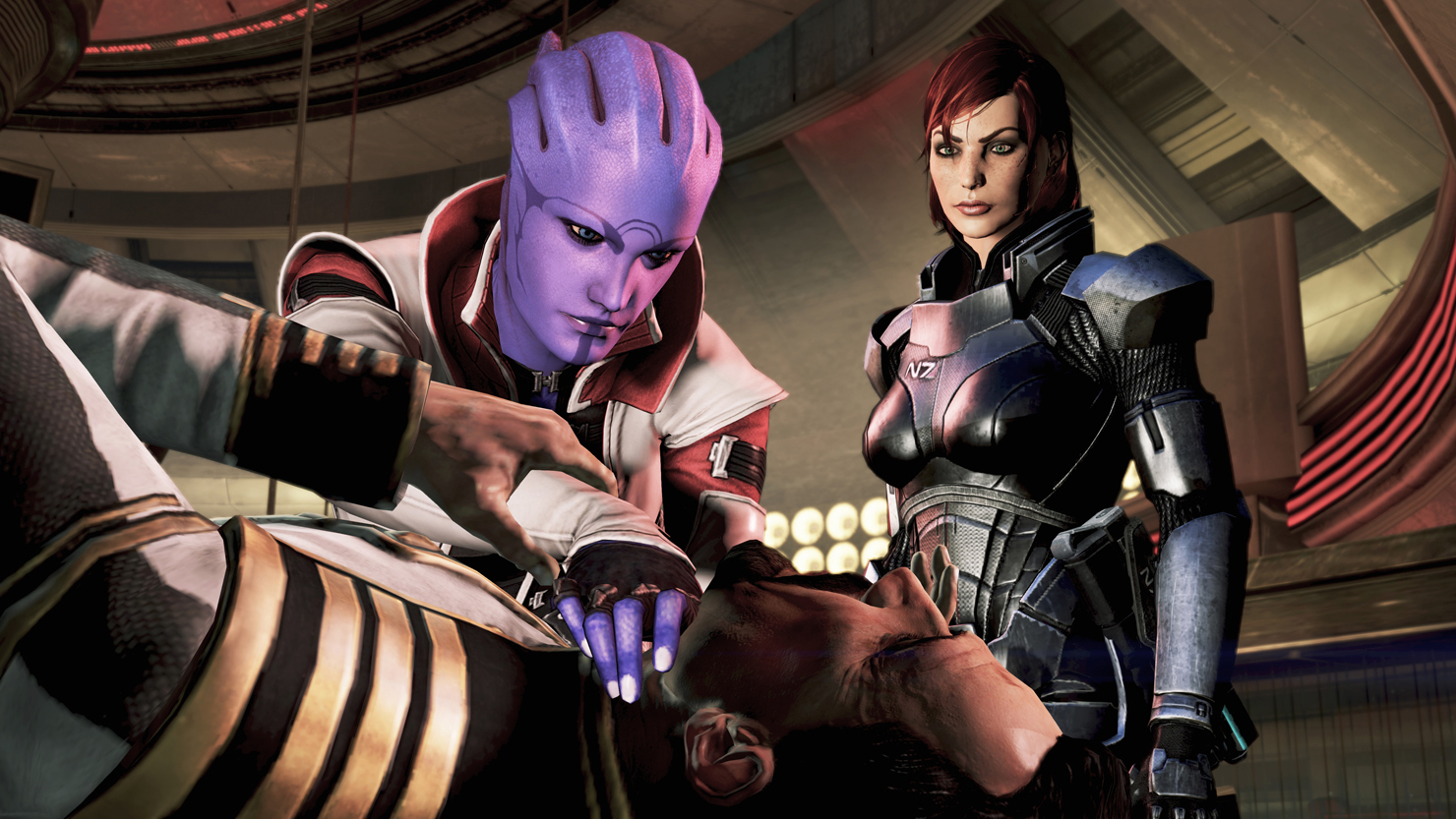
That profound kind of interactivity is an important part of what drives Meg Smitherman’s love for Mass Effect. “It doesn’t just feel like a story I’m watching from a distance. I’m saving the galaxy right alongside Commander Shepard,” said the host of Roundup Podcast, my aforementioned ECCC roommate, and proud bearer of a half-sleeve of her custom Shep. “BioWare has this magical ability to bring characters to life and make people fall in love with them, which is probably why I started planning a tattoo of Shepard before I even finished the game. She won my heart without even trying.”
Having already exercised your creativity in-game, it’s that much easier to take it one step further, leading to the incredible variety of BioWare game-related fan art and fanfic available everywhere from Tumblr to Archive of our Own. And while other fandoms might rely on cons for IRL conversations, the BioWare fandom already has a built-in mechanic through which they can “meet” and bring their friendships more into the real world: both Mass Effect 3 and Dragon Age: Inquisition offer co-operative multiplayer modes. There’s not much that makes for better bonding than killing the heck out of a high dragon together.
For now, the fandom is hunkering down for the long wait until Andromeda’s release. Until then, you can find me right where I belong: in the trash bin with all my adorable BioWare fan friends, frantically searching for the best fanfic we can find. And as fans of games that are really, at their heart, about the power of teamwork and friendship, isn’t that the best tribute we can possibly give them?

